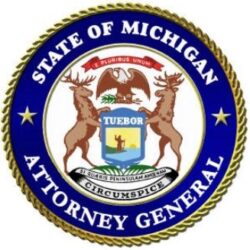
Michigan Farmers Eligible for Direct Assistance
Michigan Farmers Eligible for Direct Assistance Through USDA’s Coronavirus Food Assistance Program
Effective May 26, 2020, Michigan’s nearly 48,000 farmers can start enrolling for coronavirus relief payments as part of the United States Department of Agriculture’s $16 billion Coronavirus Food Assistance Program (CFAP).
“Michigan is fortunate to be home to a strong, resilient and diverse food and ag sector, said Gary McDowell, director, Michigan Department of Agriculture and Rural Development. “There is an army of people who grow, process, and retail our food who have also been hit hard by COVID-19. Governor Whitmer and MDARD continue to work with our partners at USDA to ensure our farmers and ag community members have access to the aid they need to weather this pandemic.”
Under the CFAP program, the aid is prorated — meaning farmers will receive 80 percent of payment in the initial distribution with the remaining 20 percent paid as funds remain available. Farmers should start receiving payment within a week of enrolling, with payments being capped at $250,000 per individual recipient.
Producers of all eligible commodities will apply through their local USDA Farm Service Agency office. Applications will be accepted through August 28, 2020. FSA has streamlined the sign-up process by not requiring an acreage report at the time of application, and a USDA farm number may not be immediately needed. Documentation to support the producer’s application and certification may be requested.
Individuals who receive less than 75 percent of their income from farming can still receive CFAP payments if their adjusted gross income does not exceed $900,000 annually. Corporations, limited liability companies, or limited partnerships may qualify for additional payment limits where members actively provide personal labor or personal management for the farming operation.
Below are USDA’s farmer guidelines:
- For wool and row crops, including malting barley, canola, corn, upland cotton, millet, oats, soybeans, sorghum, sunflowers, durum wheat, and hard red spring wheat, payments will be based on inventory subject to price risk held as of Jan. 15. A payment will be made based on 50 percent of a producer’s 2019 total production or the 2019 inventory as of Jan. 15, whichever is smaller. That amount will be multiplied by the commodity’s applicable payment rates.
- For cattle, lambs, yearlings and hogs, the payment will be calculated based on the producer’s number of livestock sold between Jan. 15 and April 15, multiplied by the payment rates per head, and the highest number of livestock between April 16 and May 14, multiplied by the payment rate per head.
- For dairy producers, the payment will be based in part on the farmer’s milk production for the first quarter of 2020, multiplied by the national price decline during the same quarter. A second part of the payment will be based on a national adjustment to each producer’s first-quarter production.
- For specialty crops, including almonds, beans, broccoli, sweet corn, lemons, iceberg lettuce, spinach, squash, strawberries, and tomatoes, payments will be based on the amount a farm sold between Jan. 15 and April 15; the volume a farm shipped during the period but was not paid for; and the number of acres that was never harvested.
More information and a full list of eligible crops can be found online at farmers.gov/cfap.
Information around this outbreak is changing rapidly. The latest information is available at Michigan.gov/Coronavirus and CDC.gov/Coronavirus.




